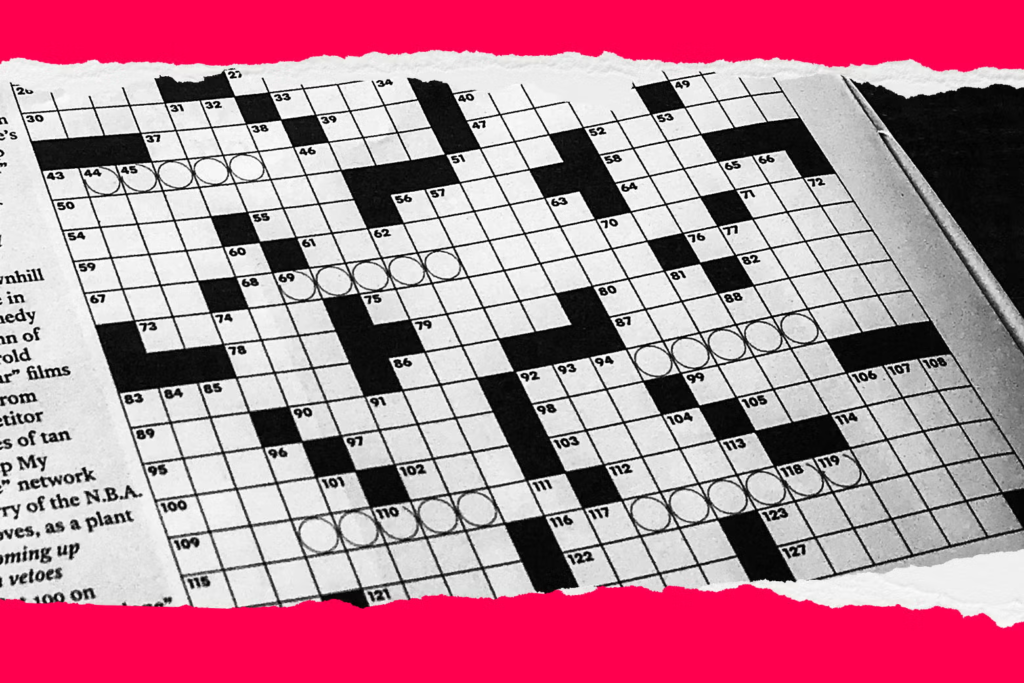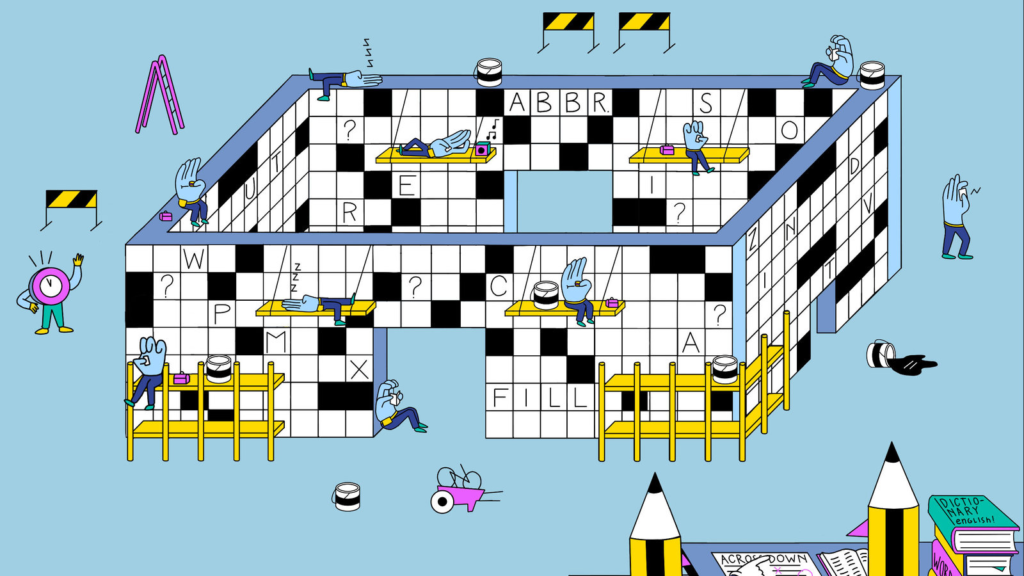Crossword puzzles can be a fun and challenging way to test your knowledge, but sometimes, a tricky clue can leave you completely stumped. If you’ve ever come across a clue in The New York Times (NYT) crossword that you just don’t understand, you’re not alone. The puzzle often includes references to pop culture, historical events, wordplay, and niche trivia that may not be familiar to every solver. In this guide, we’ll explore why certain clues can be confusing, common struggles crossword enthusiasts face, and strategies to improve your solving skills.
Why You Might Not Get the Reference
One of the main reasons solvers struggle with the NYT crossword is that the references used in clues can be highly specific. Crossword editors assume that solvers have a broad range of knowledge, but even experienced players occasionally run into topics they don’t recognize. Here are a few reasons why you might not get a reference:
- The clue references a pop culture moment, actor, or musician that you’re unfamiliar with.
- The answer is based on a historical event that isn’t widely known.
- The puzzle includes wordplay, puns, or tricky phrasing.
- The answer comes from a niche topic, like classical literature or scientific terminology.
If you find yourself confused by a crossword reference, don’t worry—it happens to everyone! The key is to develop strategies to handle these tricky clues.
Common Struggles with NYT Crossword Clues
Even seasoned crossword solvers encounter frustrating clues. The NYT crossword is known for being one of the most challenging puzzles, especially later in the week. Here are some common struggles solvers face:
- Obscure References: Some clues rely on knowledge of old movies, classic literature, or niche topics that aren’t widely known.
- Tricky Wordplay: Many clues contain puns, anagrams, or misleading wording designed to throw solvers off.
- Cultural Differences: If you’re not from the U.S., some American references may be unfamiliar.
- Ambiguous Clues: Some words have multiple meanings, making it hard to determine the intended answer.
The good news? With practice and the right approach, you can improve your crossword-solving skills and tackle even the toughest clues.
Pop Culture and Historical References
Many crossword clues reference pop culture, movies, TV shows, music, and famous figures. If you’re not up-to-date on recent trends or older entertainment, these clues can be frustrating.

For example, a clue might reference a popular TV character from the 1980s, a classic rock band, or a recent internet meme. If you’re unfamiliar with the reference, it can be almost impossible to solve the clue without outside help. Similarly, historical references can be difficult if you don’t know much about certain time periods or events.
One way to get better at solving these types of clues is to familiarize yourself with common crossword themes. Reading more about pop culture history, watching classic movies, and learning about historical figures can help you recognize references more easily.
Wordplay and Puns
Crossword editors love using clever wordplay. Some clues use puns, homophones (words that sound alike but have different meanings), or tricky phrasing to mislead solvers.
For example, a clue like “Something fishy?” might not be referring to an actual fish but instead be a play on words, leading to an answer like “Odor” (as in something suspicious). Another example could be “Lead follower?” which might seem confusing at first but could refer to the chemical symbol for tin (Sn), which follows lead (Pb) on the periodic table.
When faced with a clue that seems vague or misleading, think about possible double meanings and wordplay tricks that could be in play.
Niche Topics and Trivia
Some crossword clues rely on knowledge of specific subjects, like classical literature, mythology, or obscure geography. If you don’t have background knowledge in these areas, solving can be difficult.
For instance, a clue might reference a minor character from Shakespeare or a lesser-known Roman god. To improve, consider broadening your general knowledge by reading books, watching documentaries, or exploring new topics online.
How to Improve Your Crossword Skills
If you want to get better at solving NYT crossword puzzles, here are a few tips:
- Start with Easy Puzzles: Monday puzzles are the easiest and get harder throughout the week.
- Look for Common Clue Patterns: Many crossword clues repeat over time, so recognizing common words and themes can help.
- Use Crossword Dictionaries and Apps: These tools can provide hints without giving away full answers.
- Practice with Different Puzzle Styles: Try different types of word puzzles, like anagrams or cryptic crosswords, to sharpen your skills.
- Stay Curious: The more general knowledge you have, the easier it becomes to solve crosswords.
Helpful Tools for Crossword Solvers
If you’re stuck on a clue, several tools can help:
- Online Crossword Solvers: Websites like OneLook or Crossword Tracker can help you find possible answers.
- Thesaurus and Dictionary Websites: Sometimes, synonyms can help you figure out tricky words.
- NYT Crossword Archives: Looking at past puzzles can help you recognize common patterns and repeated clues.
- Community Forums: Websites like Reddit have crossword-solving communities where people discuss tough clues.
Using these tools wisely can make solving crossword puzzles more enjoyable and less frustrating.
What to Do When You’re Stuck on a Clue
Getting stuck on a crossword clue can be frustrating, but here are some strategies to help you move forward:
- Take a Break: Stepping away from the puzzle for a few minutes can give you a fresh perspective.
- Re-read the Clue: Sometimes, looking at the wording again can help you see it differently.
- Fill in Other Answers: Solving nearby clues can give you helpful letter hints.
- Think About Wordplay: If the clue seems strange, consider if it could be a pun or a play on words.
- Use a Solver Sparingly: If you’re completely stuck, an online solver can help, but try to use it as a learning tool.
Look for Crossword Patterns
One of the best ways to improve at crosswords is to recognize common patterns. Many answers repeat in puzzles, especially shorter words with common vowels.

For example:
- “Oreo” often appears in crossword puzzles as a common snack-related answer.
- “Erie” (as in Lake Erie) is frequently used due to its crossword-friendly letters.
- “Etui” (a small case for holding sewing supplies) is another commonly used word.
Recognizing these frequently used words can make solving easier over time.
Use Online Resources Wisely
While it’s tempting to look up every answer, try to use online resources as a last resort. Instead of just finding the answer, take time to understand why it fits the clue. This way, you’ll learn new references and be better prepared for future puzzles.
Helpful Tools for Crossword Solvers
There are many crossword apps and websites that can provide hints, check answers, and suggest possible words. Some popular options include:
- Crossword Solver Apps (like Wordplays or Crossword Clue Solver)
- Thesaurus Websites (such as Thesaurus.com)
- NYT Crossword Blog (which provides explanations for tricky clues)
Niche Topics and Trivia
If you find yourself frequently struggling with niche topics like mythology, Shakespeare, or 1950s baseball players, consider keeping a small notebook of common crossword themes. Over time, recognizing these topics will make solving easier.
Thoughts: Keep Practicing!
Crossword puzzles are meant to be challenging, and everyone gets stuck sometimes. The key is to keep practicing and learning. The more you solve, the more familiar you’ll become with tricky clues, wordplay, and common crossword themes. Don’t get discouraged—every puzzle you solve makes you a better solver!
The Bottom Line
If you ever struggle with a NYT crossword clue and find yourself thinking, “I just don’t get the reference!”, remember that it’s part of the challenge. Whether it’s a tricky wordplay clue, a pop culture reference, or an obscure historical fact, you can improve by practicing, expanding your knowledge, and using helpful resources. With time and patience, you’ll become a better crossword solver—and maybe even look forward to those tricky clues!







